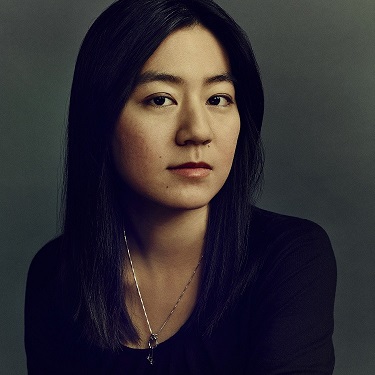In this 2018–2019 Alan Cheuse Emerging Critics Q and A series, curated by Jonathan Leal, Emerging Critics offer short takes on big questions: What makes good criticism? How might one arrange one’s life to produce it? How do discrete critical interests relate? And if given the chance, what assignments would one pursue immediately? Applications are now open for the third class of NBCC Alan Cheuse Emerging Critics. Deadline April 3, 2019. Details here.
 What are your current critical interests? How have these developed or evolved over time? Are there particular genres or themes to which you are committed? What sorts of issues or concerns have animated your work? *
What are your current critical interests? How have these developed or evolved over time? Are there particular genres or themes to which you are committed? What sorts of issues or concerns have animated your work? *
Starting out, I used to be interested in whatever people would pay me to opine about. That’s still sort of true—I’ll read pretty much anything. But I have a special fondness for novels and nonfiction, and I especially love writing that teaches me something new or surprising about people or the world we live in. I’ve been thinking a lot lately about the importance of seeing both clearly, and I think reading is one of the best tools we have to do that.
What do you think makes good criticism? And relatedly: what makes a good critic?
At minimum, I think, it should put forth an incisive, clear argument about what a book is trying to do and why it matters, and feel like it’s written for the reader instead of the book’s various stakeholders. Really great criticism gives you a sense of the book as it relates to the broader intellectual sphere: to history, say, or to similar ideas that other people have written about. Basically, it provides context. Also, I have a soft spot in my heart for criticism that is actively delighted by what it’s doing, which is essentially dishing about a book. Reading is fun, so reading about reading should be fun too. A good critic is anyone who can produce this sort of criticism—usually I imagine them as someone smarter, more articulate, and more well-read than I am but (and this is important) isn’t intimidating about it.
How, if at all, does criticism inform your creative work?
For me, the two are one and the same. I find the real world much more fascinating and capacious and bewildering than anything I could ever make up, and I was drawn to write criticism in the first place to help me understand and explain it, in some small measure, at least to myself. (That, and free books.) So I’m much happier picking apart works of art and seeing how they work than eking out my own (very bad) fiction/poetry.
Given the many demands on your time, how do you arrange your schedule so you can produce good work?
My schedule is dictated mostly by necessity rather than optimization, which basically means it’s a mishmash of ill-considered schemes I’ve concocted to hit my deadlines. But I do try to get enough sleep.
For you, right now: what would be your dream assignment?
There are lots of places I’d love to see my byline, but my deepest, mildly embarrassing writing desire is to write a reading diary column where I sound off about books I happen to be reading in a casual, personal way, free from the dictates of release dates. (This will likely remain a dream because no one would pay me real money to do this.) But I’ve always been curious/interested in/nosy about people’s reading lives, because books don’t exist in a vacuum—we have relationships with them that aren’t always buttoned-up and strictly analytical. I like writing that reflects that.
Chelsea Leu is a writer and critic whose work has appeared in the New York Times, the San Francisco Chronicle, the Los Angeles Review of Books, Electric Literature, The Rumpus, Kirkus, and elsewhere.

